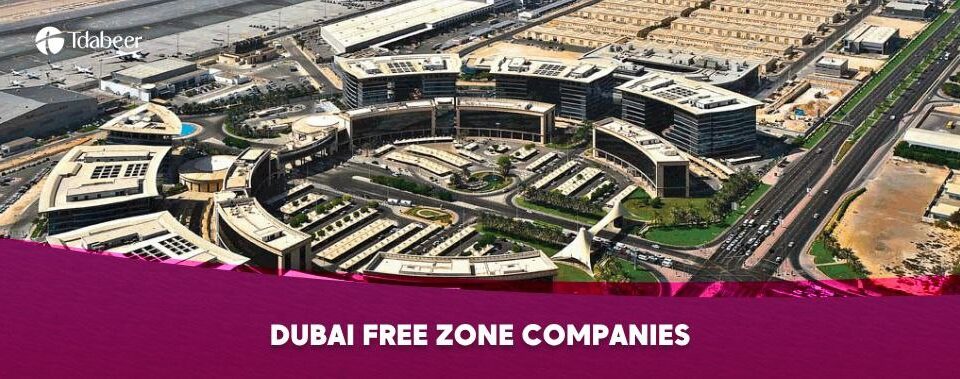
Dubai free zones are well-known for offering a business-friendly environment with a range of benefits for foreign investors.
Among the types of companies you can establish in these zones are commercial companies. These entities are focused on trading goods, importing and exporting products, and conducting general business activities.
Commercial companies in Dubai free zones enjoy several advantages, including tax exemptions, full foreign ownership, and simplified trade processes.
In this guide, we will explore what commercial companies in Dubai free zones are, their benefits, and how to set one up.
What Are Commercial Companies in Dubai Free Zones?
A commercial company in a Dubai free zone is a business entity primarily engaged in the buying and selling of goods. This includes activities such as import, export, re-export, and distribution of products. These companies are granted a Commercial Trade License, which allows them to conduct trading activities both within the free zone and internationally.
While free zone companies cannot directly trade within the UAE mainland, they can sell their products there by partnering with a local distributor or agent.
Key Benefits of Setting Up a Commercial Company in a Dubai Free Zone
- 100% Foreign Ownership
- Investors can own their company completely without the need for a local partner, unlike mainland businesses.
- Tax Exemptions
- Free zone commercial companies benefit from a 0% corporate tax rate, no import/export duties, and no personal income taxes.
- No Customs Duties
- Goods imported and exported through a free zone are exempt from customs duties, making it more cost-effective to trade internationally.
- Full Repatriation of Profits
- Investors can repatriate 100% of their profits and capital without any restrictions, making it easier to manage finances internationally.
- Simplified trade processes
- Free zones offer streamlined logistics and customs services, reducing the time and effort involved in importing and exporting goods.
- Modern Infrastructure
- Free zones are equipped with state-of-the-art facilities, including warehousing, office spaces, and transportation networks tailored to commercial activities.
- Access to International Markets
- Dubai’s strategic location between Europe, Asia, and Africa makes it an ideal hub for international trade. Free zones offer easy access to ports, airports, and major shipping routes.
Types of Commercial Licenses for Free Zone Companies
- General Trading License
- Allows businesses to trade a wide range of products, including electronics, textiles, food products, and other goods. This is ideal for businesses looking to deal in multiple categories of products.
- Specific Trading License
- This license is granted for businesses trading in specific product categories, such as electronics, building materials, or chemicals. It is more focused than a general trading license.
- E-Commerce License
- With the rise of online retail, many free zones now offer e-commerce licenses. This allows businesses to operate online platforms and conduct digital transactions.
Popular Free Zones for Commercial Companies in Dubai
- Jebel Ali Free Zone (JAFZA)
- One of the largest and most established free zones in Dubai, JAFZA is ideal for businesses involved in large-scale international trade and logistics. It offers access to Jebel Ali Port, one of the busiest ports in the region.
- Dubai Airport Free Zone (DAFZA)
- Located near Dubai International Airport, DAFZA is perfect for companies dealing with air cargo and international trade. It offers excellent logistics and customs services, particularly for businesses in electronics, aerospace, and pharmaceuticals.
- Dubai Multi Commodities Centre (DMCC)
- DMCC is specialized in commodities trading, including precious metals, diamonds, tea, and energy. It is one of the leading free zones for commercial businesses in Dubai, with a focus on commodities and international trade.
- Dubai South Free Zone
- Known for its proximity to the Al Maktoum International Airport and its connectivity to the Jebel Ali Port, Dubai South Free Zone is great for logistics, aviation, and general trade businesses.
- Dubai Silicon Oasis (DSO)
- While focused on tech-related businesses, DSO also offers licenses for companies engaged in the trading of electronics and IT-related products.
Steps to Set Up a Commercial Company in a Dubai Free Zone
- Choose the Right Free Zone
- The first step is selecting the free zone that best aligns with your business needs. Each free zone has specific industry focuses, so it’s important to choose one that supports your trading activity.
- Decide on a Business Activity
- Determine whether you need a general trading license or a specific trading license based on the goods you intend to trade. If you plan to sell products online, you may require an e-commerce license.
- Register the Company Name
- You must select a unique name for your company that complies with the UAE’s naming regulations. Ensure the name reflects your business activity and does not include any offensive or restricted terms.
- Submit required documentation.
- You will need to submit several documents to the free zone authority, including:
- Passport copies of the shareholders and directors
- A completed business application form
- Proof of residence for shareholders
- A business plan (if required by the free zone)
- You will need to submit several documents to the free zone authority, including:
- Obtain the Commercial License
- Once your documentation is approved, you will receive your commercial license. This license allows you to start trading within the free zone and internationally.
- Lease Office or Warehouse Space
- Most free zones require businesses to have a physical presence, either in the form of an office or warehouse. You can choose from various options, such as a flex desk, dedicated office, or warehouse facility, depending on your needs.
- Open a Corporate Bank Account
- Once your company is registered, you will need to open a business bank account in the UAE. Most banks require the company’s trade license, shareholder documents, and proof of address.
- Apply for Visas
- After the company is set up, you can apply for visas for yourself and any employees you intend to hire. Free zones often provide visa packages based on the size of the office space leased.
Costs of Setting Up a Commercial Company in a Free Zone
The costs of setting up a commercial company in a Dubai free zone vary based on the free zone and the size of your business. Here is a general breakdown:
- Commercial License Fees: AED 15,000–AAED 50,000 annually (depending on the type of license)
- Office Space: AED 10,000–AAED 50,000 annually (flexi-desks and small offices are cheaper, while larger warehouses and offices cost more).
- Registration Fees: AED 5,000–AAED 15,000 (one-time fee)
- Visa Fees: AED 3,000–AAED 5,000 per visa
Trading in the UAE Mainland
One important thing to note is that free zone companies cannot directly trade in the UAE mainland. However, they can still do business on the mainland through the following methods:
- Partner with a Local Distributor: Free zone companies can hire a local distributor to sell their goods within the UAE mainland.
- Open a Branch in the Mainland: A free zone company can establish a branch office in the mainland, although this requires additional licensing and a local service agent.
Conclusion
Setting up a commercial company in one of Dubai’s free zones offers numerous benefits, including full foreign ownership, tax exemptions, and streamlined trade processes.
Free zones are particularly attractive for businesses engaged in international trade, allowing them to benefit from Dubai’s strategic location, world-class infrastructure, and favorable business environment.
By choosing the right free zone and following the necessary steps, you can successfully launch and grow your commercial company in Dubai.




